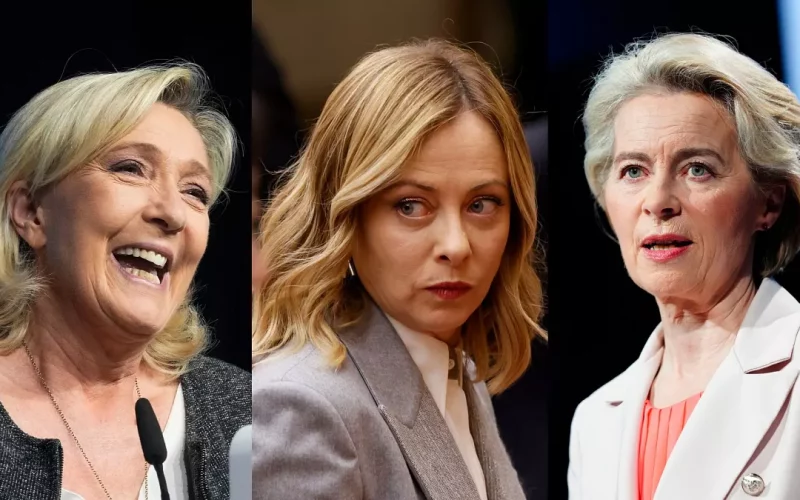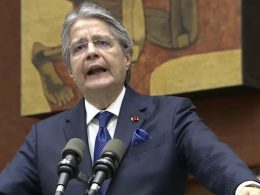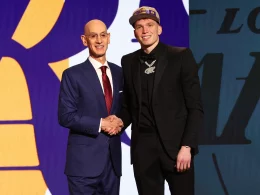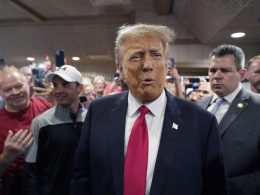Ursula von der Leyen, the current President of the European Commission, finds herself in a political storm as she maneuvers her bid for a second term. At the heart of the controversy are her alleged ties with far-right Italian politician Giorgia Meloni. These allegations have raised questions about von der Leyen’s political alliances and the implications they may have for her leadership within the European Union (EU). In this article, we delve into the background of this issue, analyze its potential ramifications, and explore the broader context of European politics.
Background: Von der Leyen and Meloni
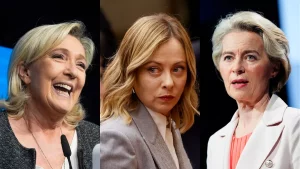
Ursula von der Leyen, a prominent figure in European politics, assumed office as President of the European Commission in December 2019. Prior to this, she served as Germany’s Minister of Defense and Minister of Labor and Social Affairs. Von der Leyen’s tenure as Commission President has been marked by numerous challenges, including Brexit negotiations, the COVID-19 pandemic, and economic recovery efforts.
Giorgia Meloni, on the other hand, leads the far-right Brothers of Italy party and has been a vocal critic of EU policies, particularly regarding immigration and sovereignty. Meloni’s political stance aligns with other right-wing leaders across Europe who advocate for stricter border controls and nationalist agendas.
The Allegations
Recent reports have suggested that Ursula von der Leyen has established ties with Giorgia Meloni, raising concerns among EU officials and member states. These allegations stem from meetings and communications between von der Leyen and Meloni, indicating a level of political collaboration that has sparked controversy within the EU.
Analysis of the Alleged Ties
The purported relationship between von der Leyen and Meloni has significant implications for European politics. Firstly, it raises questions about von der Leyen’s commitment to the EU’s core values, such as democracy, human rights, and the rule of law. Meloni’s far-right ideology contradicts these principles, leading to concerns about the compatibility of their political agendas.
Secondly, the alleged ties between von der Leyen and Meloni highlight the broader issue of political polarization within the EU. As right-wing populism continues to gain momentum across Europe, leaders like Meloni pose a challenge to the traditional centrist consensus that has guided EU policymaking for decades. Von der Leyen’s association with Meloni could exacerbate divisions within the EU and undermine efforts to foster unity and cooperation among member states.
Potential Ramifications
The controversy surrounding von der Leyen’s alleged ties with Meloni could have far-reaching consequences for her bid for a second term as President of the European Commission. If substantiated, these allegations may erode confidence in von der Leyen’s leadership and diminish support for her reelection among EU member states and institutions.
Furthermore, von der Leyen’s association with a far-right politician like Meloni could damage the EU’s reputation on the global stage. The EU has long been seen as a bastion of liberal democracy and progressive values, but its credibility may be called into question if its leaders are perceived to be aligning themselves with extremist elements.
Comparative Analysis Table
| Aspect | Ursula von der Leyen | Giorgia Meloni |
|---|---|---|
| Political Ideology | Center-right | Far-right |
| Position | President of the European Commission | Leader of Brothers of Italy party |
| Stance on EU | Supports EU integration | Critical of EU policies |
| Key Policies | Economic recovery, climate change | Nationalism, immigration control |
| Public Image | Mixed reception, facing criticism | Popular among far-right supporters |
| EU Relations | Leading EU institution | Often at odds with EU decisions |
| Global Impact | Represents EU on international stage | Limited global influence |
Conclusion
As Ursula von der Leyen navigates the complexities of European politics, her alleged ties with Giorgia Meloni have cast a shadow over her bid for a second term as President of the European Commission. The implications of these allegations extend beyond von der Leyen’s personal ambitions, raising broader questions about the future direction of the EU and the challenges posed by right-wing populism. As the controversy unfolds, the eyes of Europe—and the world—remain fixed on Brussels, awaiting the outcome of this political drama.






